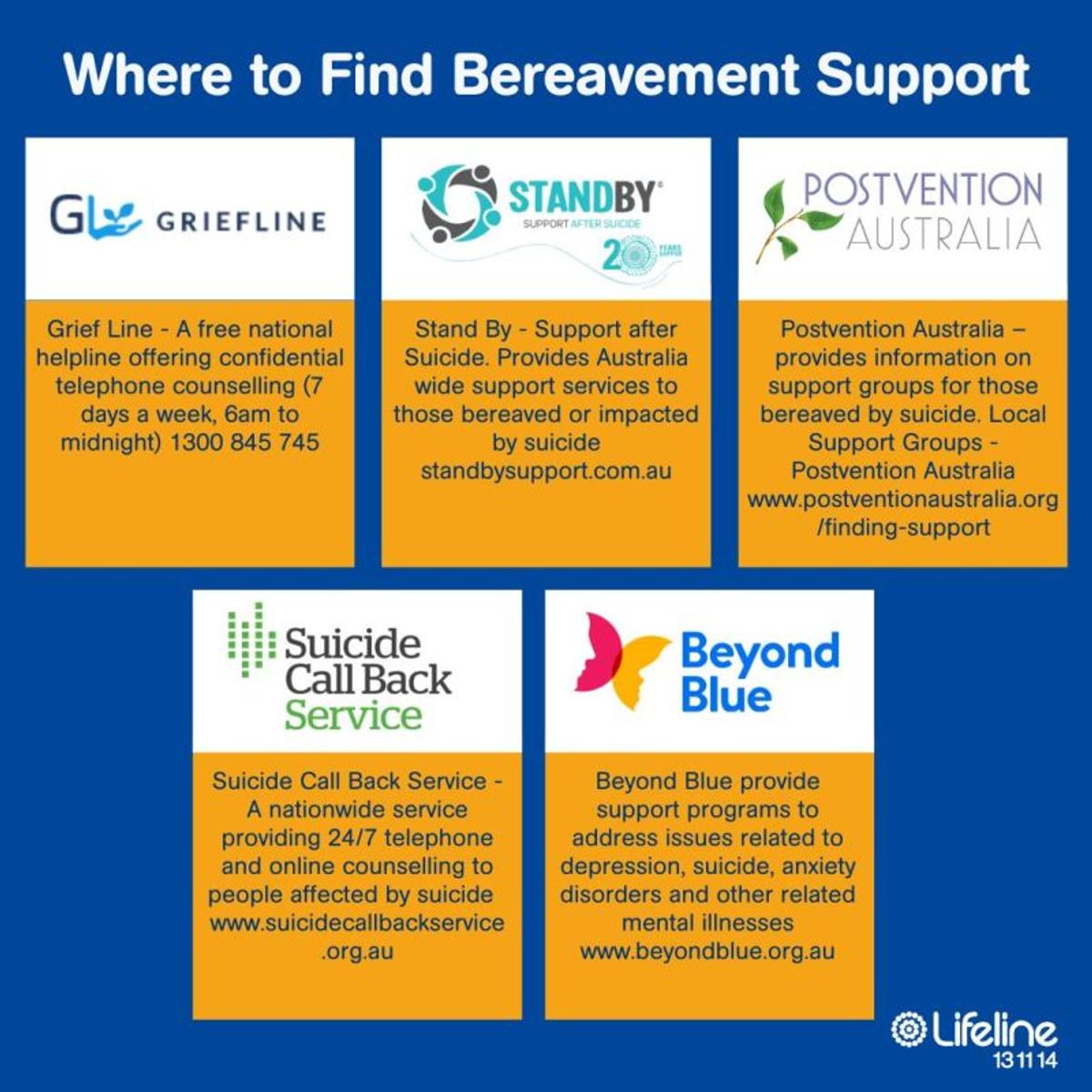Student Wellbeing
Wellbeing

Student Wellbeing
Wellbeing
Grief and bereavement are natural and unavoidable parts of life. Losing someone you love can be incredibly difficult, and it's normal to feel deep sadness and loss. If you're a teenager who has experienced the death of a loved one, it's important to know that you're not alone and that there are ways to cope with your grief.


Here are some tips for dealing with grief and bereavement as a teenager:
Allow Yourself to Feel Your Emotions
Grief can be overwhelming, and it's normal to experience a range of emotions, including sadness, anger, guilt, and frustration. It's important to allow yourself to feel these emotions and to express them in healthy ways. This might include talking to a trusted friend or family member, writing in a journal, or engaging in creative activities like drawing or painting.
Take Care of Yourself
Grief can take a toll on your physical and mental health, so it's important to take care of yourself during this time. This might include getting enough rest, eating healthy foods, and engaging in regular exercise. Mindful breathing and other relaxation techniques can also be helpful for managing stress and anxiety.
Seek Support
It's important to have a support system during the grieving process. This might include family members, friends, or a grief counsellor. Don't be afraid to reach out for help if you need it.
Be Patient With Yourself
Grief is a process, and it takes time to heal. Be patient with yourself and don't expect to feel better overnight. It's normal to have good days and bad days, and it's okay to take the time you need to grieve.
Find Ways to Honour Your Loved One
Finding ways to honour your loved one can be a helpful part of the grieving process. This might include creating a memorial, planting a tree, or participating in a charity walk or run in their memory.
Experience Their Favourite Things
Trying out someone’s favourite activities can teach you a lot about that person — even if they’ve passed away. Watch their favourite tv shows and movies, read their favourite books, or crank up the stereo and listen to their favourite albums. Experiencing these little things can give you a deeper sense of who your loved one was and help you feel closer to them.
Make a Donation
If your loved one supported a particular cause, you can make a donation to that cause in their name, ensuring the things they care about continue to receive funding. If funds are tight, see if it’s possible to donate your time, rather than money. Volunteering at a place your loved one felt strongly about can help bring you closer to them.
Create a Memorial
Memorials take many shapes; it can be something as simple as a plaque on a bench or a selection of their favourite flowers and plants in a local garden. You may even consider a tree in a protected memorial forest. Every time someone pauses to admire the area, they’ll see the plaque or memorial marker with your loved one’s name on it and, however briefly, think about who that person might have been.
Keep Something of Theirs Close by
Holding on to an item of clothing, a piece of jewellery, or something similar can help you feel close to someone who has passed away. You might keep these things in the shape they were when you received them, but you can also turn them into something you can wear or use more often. For example, you can incorporate a flannel shirt into a quilt, or turn a ring into a necklace.
Light a Candle
Did your loved one have a favourite scent or colour? Buy or make a candle they would enjoy and honour their memory by lighting it on occasions that were special for them. Think about them each time you light the candle or say a prayer if you feel moved to do so.
Establish a Celebration of Their Life
Shared affection can help you remember loved ones — together. You can start small by putting together a memorial website or social media account where friends, family, and acquaintances can share their stories about your loved one. You might also pick a day every year where you gather those same people to celebrate the person who has passed. Toast to them in a restaurant they adored or organize a hike and a moment of silence on one of their favourite trails.
Live the Life They Would Want for You
When we lose someone we love, we may feel like nothing will ever be right again. As time passes, the wound they have left behind will begin to heal, but we often ask ourselves, “how do we go on?” Just remember feeling lost or overwhelmed can be normal. Grief takes time to process, and the way you move forward in life will be just that: your way forward. Just remember that your loved one would deeply wish for you to feel happy again. They would want you to accomplish your goals, to experience joy, to make the most of the life you have.
When you think about how to honour a loved one who has passed away, don’t linger on the hole they have left behind. Instead, celebrate who they were and what they did, and do your best to carry on their spirit. In that way, they’ll always be with you.
Remember, grief is a natural and normal part of life. It's okay to feel sad and to take the time you need to heal. With support and self-care, you can get through this difficult time.
Griefline: 1300 845 745
If you’re unsure on how to support a grieving friend, you may find this video useful:


Breakfast Club is open to all students so please join us 8am - 8:30am Tuesdays and Thursdays at Wellbeing for some free healthy food to start your day!
headspace: visit headspace.org.au to find your nearest centre or call headspace on
1800 650 890.
Kids Helpline:
1800 55 1800 or kidshelpline.com.au
ReachOut: reachout.com.au
SANE Australia: 1800 187 263 or sane.org
National 24/7 crisis services
Lifeline:13 11 14 or lifeline.org.au
Suicide Call Back Service: 1300 659 467 or suicidecallbackservice.org.au
beyondblue:
1300 224 636 or beyondblue.org.au
Student Wellbeing Team
Email: wellbeing@wantirnacollege.vic.edu.au
Guiseppe Relia – Wellbeing Coordinator
Talea-Jane Simpson – School Counsellor
Lea Marrison - Mental Health Practitioner
Tajinder Wulff - Mental Health Practitioner